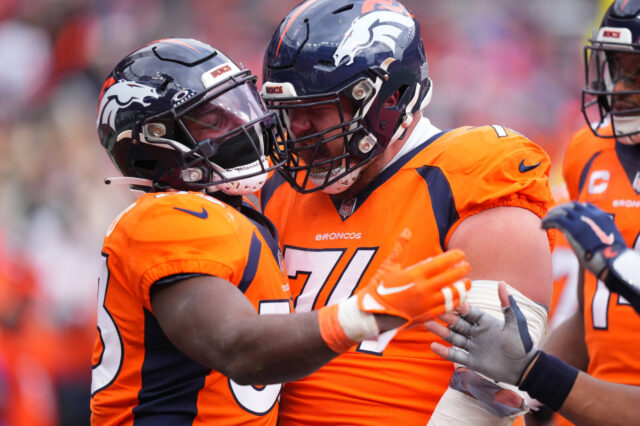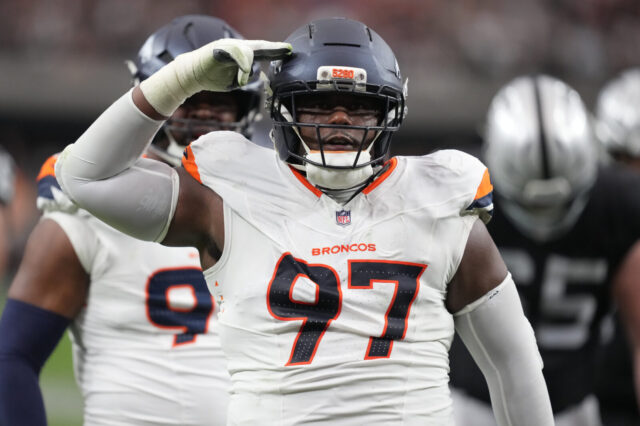3. Pressure, pressure, pressure
If there’s one thing that could derail Aaron Rodgers, it’s pressure. And luckily, the Broncos bring a lot of it.
According to Pro Football Focus, Rodgers is only the 11th best quarterback in the NFL when facing pressure, and for Rodgers, that’s horrible. But he also only faces pressure on just 34 percent of his drop backs, which is the 12th lowest mark in the league.
Against the Broncos, who have PFF’s No. 2 ranked pass rush, I’ve got a feeling he’s going to face a little more pressure than that.
But generating a pass rush won’t be enough. The Broncos have to keep contain. Not many quarterbacks can extend a play better than Aaron Rodgers, and that’s evidenced by the the fact that he takes an average of 2.95 seconds (third slowest in the league) to throw the ball.
Now, for the last few years we’ve heard commentator after commentator marvel at how quickly Peyton Manning gets the ball out of his hand — currently 2.27 seconds (third fastest in the league) — and it’s true; the ability to diagnose the play and get the ball out that quickly is a unique skill.
But to say that Rodgers release time is indicative of anything other than a great quarterback would be wrong. Unlike Manning, who needs to get the ball out quickly to survive, Rodgers is most dangerous when he can extend the play, break the pocket, run around and find a wideout streaking down the field. That’s what the Broncos have to stop.
If Rodgers beats the Broncos by getting the ball out in 2.27 seconds, fine. There’s not much they can do about that. But if the Broncos give Rodgers four or five seconds to scramble around and find an open wide receiver, they’re done for.
But if there’s any defense capable of containing Aaron Rodgers, it’s these Denver Broncos.



